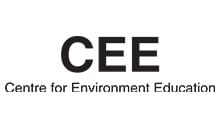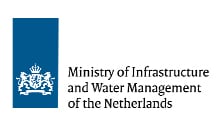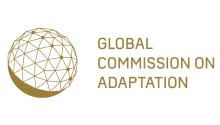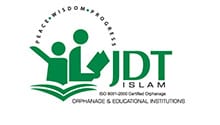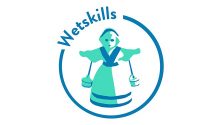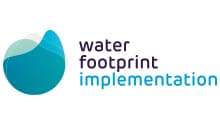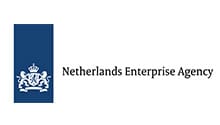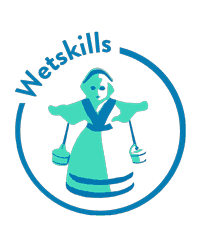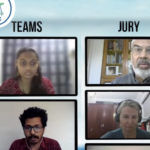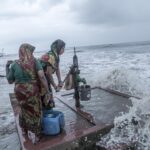
- This event has passed.
W@tskills-India 2021
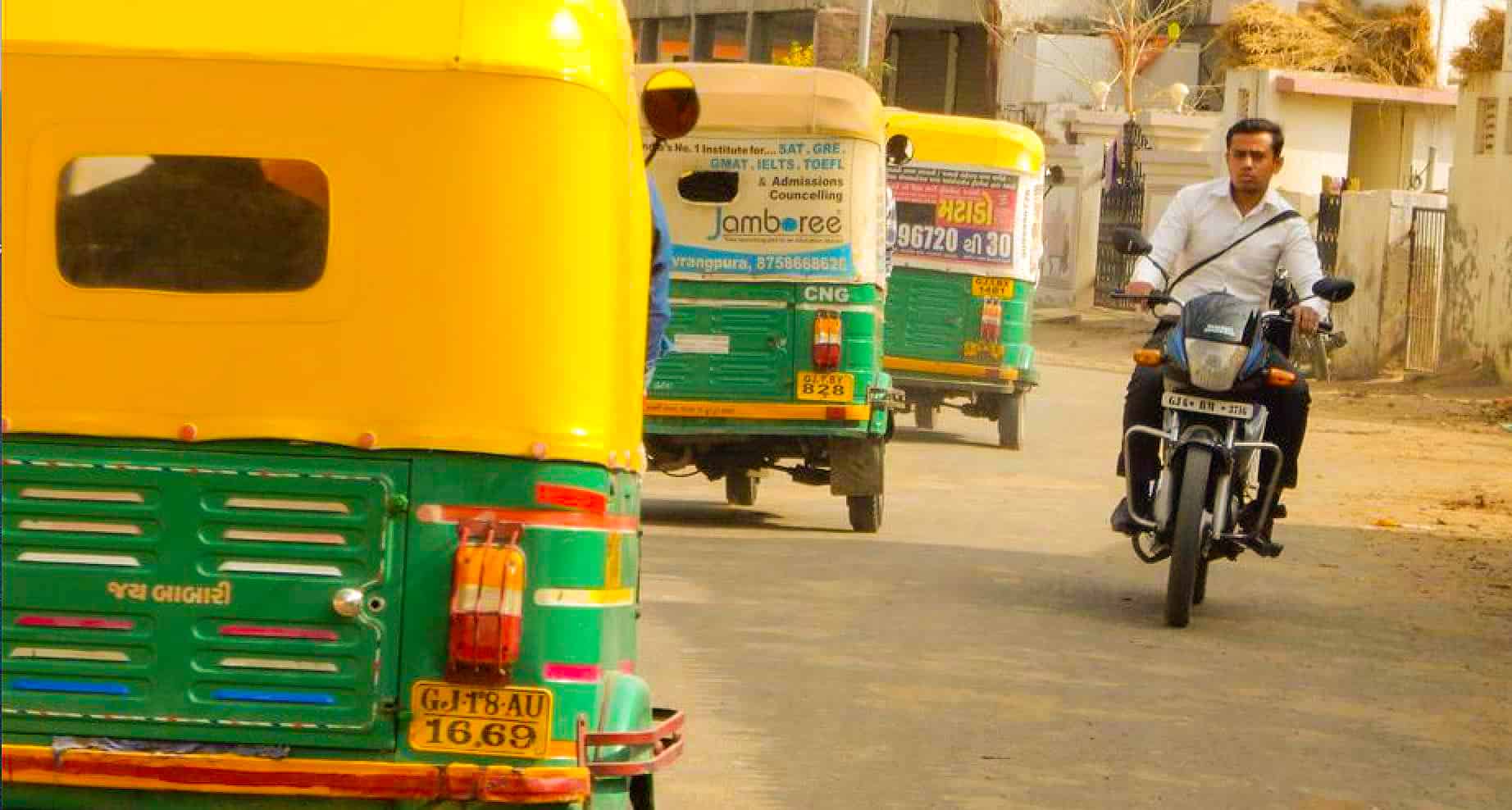

Create your Climate Adaptive Future!
Online (interstate) W@tskills Event in India!
Wetskills Foundation and our Indian host Centre for Environment Education organized this Water Challenge with participants from different states in India together with international participants. The participants worked in transdisciplinary teams on real-life water cases from 2 – 13 January.
This edition was the fifth Wetskills event in India, after Events in 2015 and 2017 in Ahmedabad, and the 2019 Event in both Delhi and Kerala.
The results of this Wetskills event will be published during the Water Action Track of the online Climate Adaptation Summit. This online Summit will be organized by the Global Center on Adaptation in The Netherlands on 25 January 2021 with the live and online presence of many Sustainability Leaders all over the world.
The main theme of this Wetskills Challenge was Climate Adaptation and the role of water. The study-cases for the teams were covering Climate Adaptation themes in various parts of India with various stakeholders.
Practical Information

Video’s of previous Wetskills events in India!
Follow Wetskills

[no_icons icon_pack=”font_elegant” fa_icon=”fa-facebook” fa_size=”fa-lg” custom_size=”30″ type=”normal” rotated_shape=”no” icon_shadow=”no” inner_border=”no” back_to_top_icon=”” link=”https://www.facebook.com/Wetskills-496271977097972″ anchor_icon=”” target=”_blank” icon_color=”#0076b2″ hover_icon_color=”#43dbbd” margin=”0px 12px 0px 0px” fe_icon=”social_facebook”] [no_icons icon_pack=”font_elegant” fa_icon=”fa-twitter” fa_size=”fa-lg” custom_size=”30″ type=”normal” rotated_shape=”no” icon_shadow=”no” inner_border=”no” back_to_top_icon=”” link=”http://twitter.com/wetskills” anchor_icon=”” target=”_blank” icon_color=”#0076b2″ hover_icon_color=”#43dbbd” margin=”0px 12px 0px 0px” fe_icon=”social_twitter”] [no_icons icon_pack=”font_elegant” fa_icon=”fa-instagram” fa_size=”fa-lg” custom_size=”30″ type=”normal” rotated_shape=”no” icon_shadow=”no” inner_border=”no” back_to_top_icon=”” link=”https://www.instagram.com/wetskills/” anchor_icon=”” target=”_blank” icon_color=”#0076b2″ hover_icon_color=”#43dbbd” margin=”0px 12px 0px 0px” fe_icon=”social_instagram”] [no_icons icon_pack=”font_elegant” fa_icon=”fa-twitter” fa_size=”fa-lg” custom_size=”30″ type=”normal” rotated_shape=”no” icon_shadow=”no” inner_border=”no” back_to_top_icon=”” link=”https://www.linkedin.com/groups/2949484″ anchor_icon=”” target=”_blank” icon_color=”#0076b2″ hover_icon_color=”#43dbbd” margin=”0px 12px 0px 0px” fe_icon=”social_linkedin”] [no_icons icon_pack=”font_elegant” fa_icon=”fa-youtube-square” fe_icon=”social_youtube” fa_size=”fa-lg” custom_size=”30″ type=”normal” rotated_shape=”no” icon_shadow=”no” inner_border=”no” back_to_top_icon=”” link=”https://www.youtube.com/channel/UCJmPNM9roCkR1uvgJMHqpvA” anchor_icon=”” target=”_blank” icon_color=”#0076b2″ hover_icon_color=”#43dbbd” margin=”0px 12px 0px 0px”]
Event Cases

Case 1: Water as Leverage for Clean Rivers
India is generating an enormous amount of sewage from which about 85% of wastewater is being discharged in the environment. Looking at the Ganga river basin human activities generate approximately three times the sewerage as the treatment capacity. Various initiatives have been established, as National Mission for Clean Ganga, to achieve the water quality norms in the Indian rivers. The ‘Water as Leverage’ method focus on urban climate resilience with rather small-scale activities, with the aim of leveraging the necessary investment for the implementation of larger scale activities (for example in Chennai). How can Indian cities use ‘Water as Leverage’ to plan a Climate Adaptive urban area with a focus on both clean and polluted water and create that leverage to clean the rivers?
Case 2: Strengthing community involvement in water governance: Pani Panchayat
SDG6: clean water and healthy sanitation is an enormous challenge in rural areas in India. There is a massive drive to provide water and sanitation infrastructure in villages. Community participation and ownership in planning, management and governance of water resources can help find solutions that cater to the locale specific requirement in the villages. Their participation especially that of women in governance of water at the village level using platforms such as the Pani Panchayat and Gram Sabhas needs to be strengthened, learning from best-practices on ‘Pani Panchayat and also small-scale technical solutions: Water in Communities’. How can rural communities take the lead in water governance to create robust and resilient small-scale water and sanitation systems? How can rural communities especially women take ownership of water and sanitation solutions, creation of systems to manage and monitor?
Case 3: Water-Smart planning of agriculture
The expected population growth and its growing needs in combination with water stress due to climate change is creating more pressure on the agriculture. Also in India. India is already facing water stress and as a result of this, the water quality is becoming poorer, less water for functions and enormous groundwater extraction. Looking at farmers’ aim is to grow as much as possible with the available water to maximize the income. This leads to a vicious circle where the water demand and supply is becoming less optimized. The Water Footprint is a scientifically proven method to measure and gain insight into the supply and demand of water for agriculture and even quantify it in terms of economic added value and virtual water flows. How can India use the Water Footprint as a method for its strategic water allocation management and create a better resilience for its farmers?
Pitch & Poster
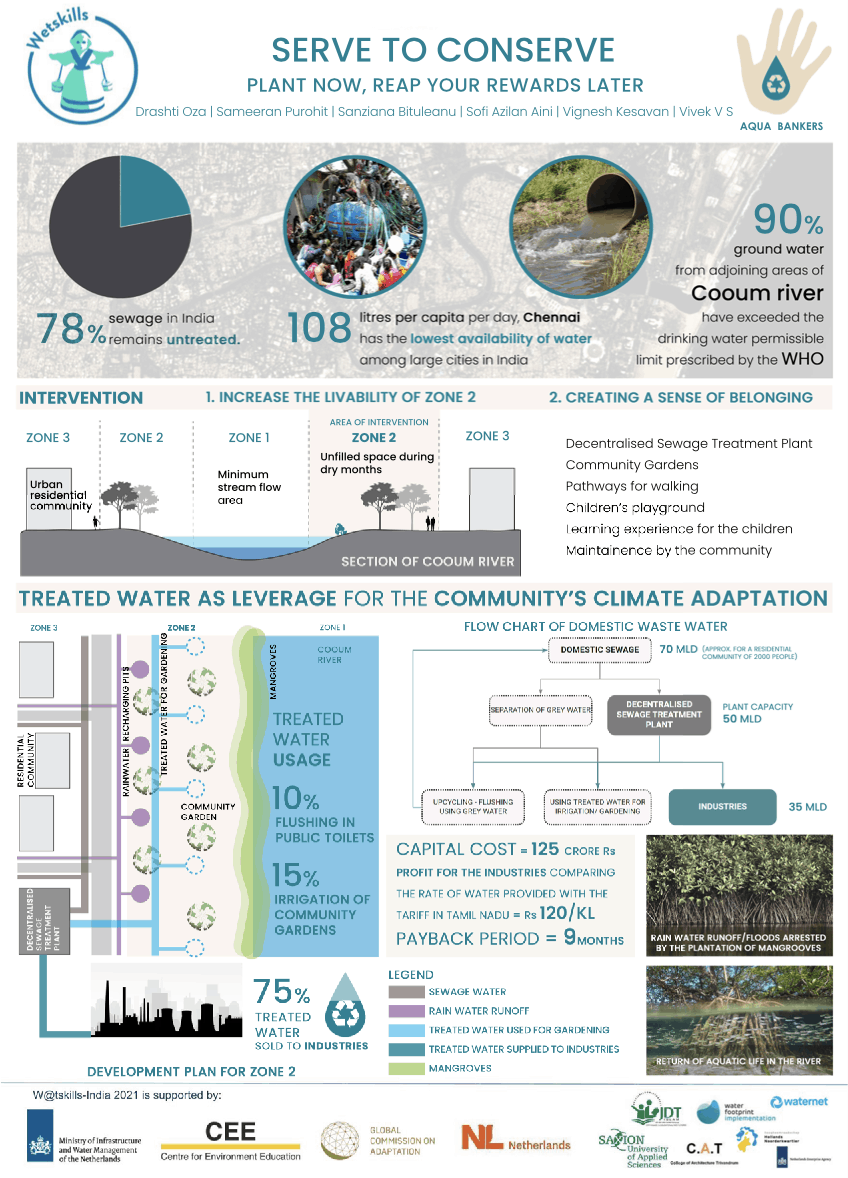
Pitch & Poster
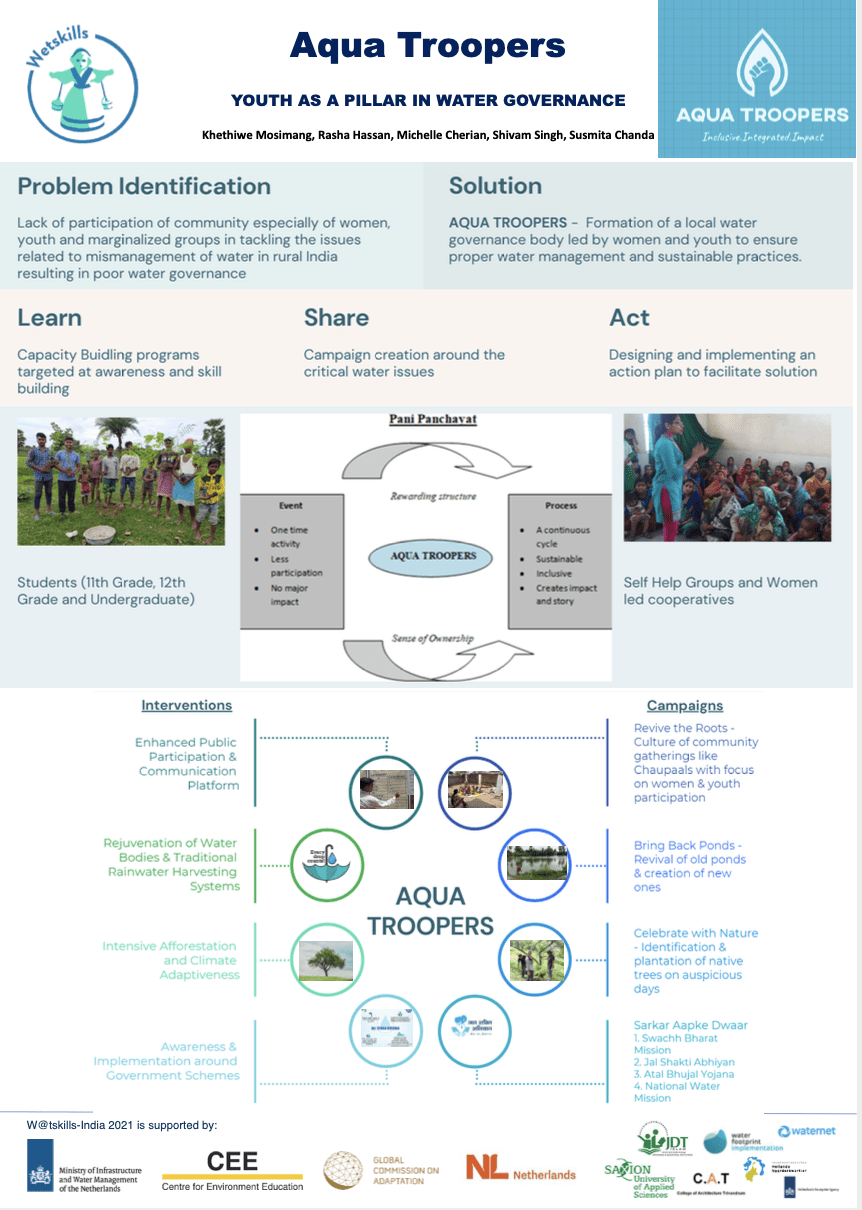
Pitch & Poster
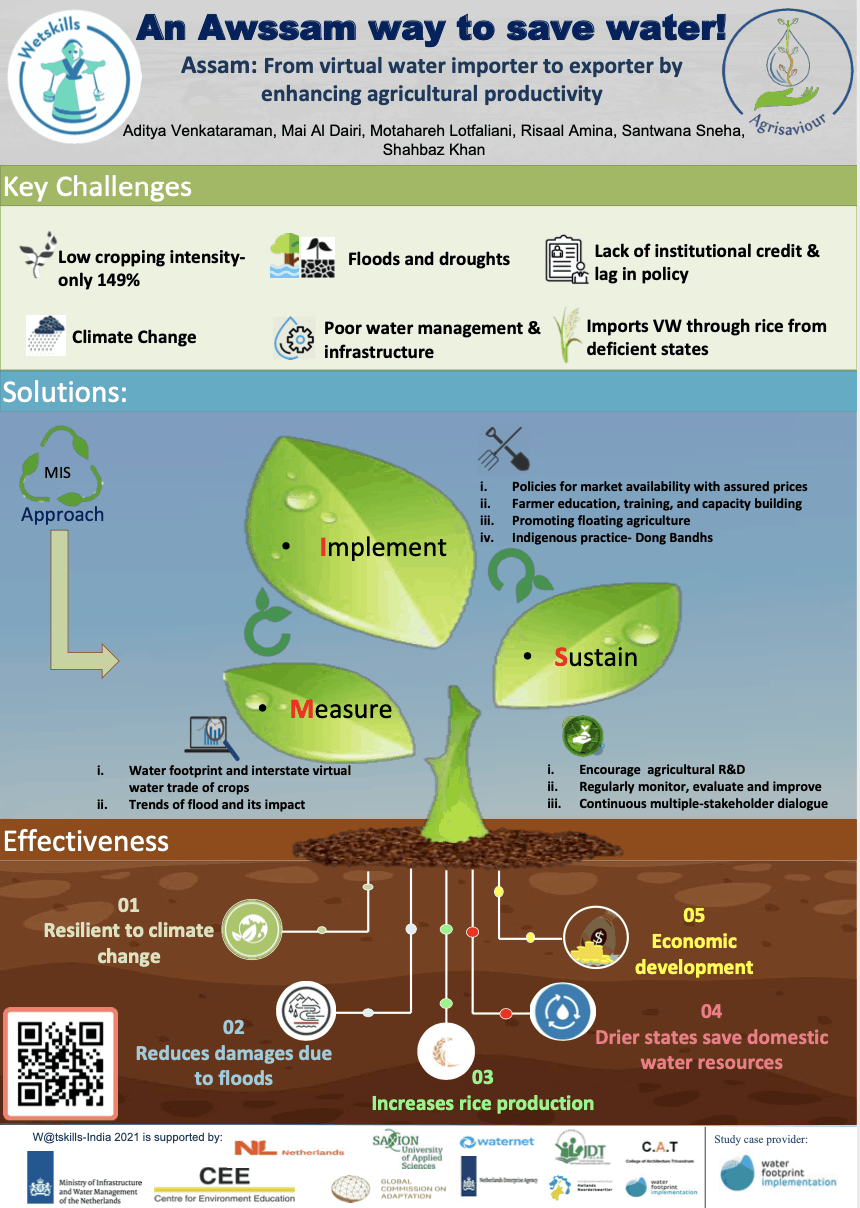
Case 4: ‘Pink Alert’: Empowering Women for Climate Adaptation
As women and children are the most affected and helpless during any natural disasters, prioritization of their needs should be taken into planning practices. Special attention is required during and after disasters to improve their access to recovery assistance and to help them advocate for themselves and to help them voice out issues that may improve the development of local mitigation and adaptation measures. Moreover, a pro-active attitude with a focus on avoiding disasters can prevent a lot of damage. The impact of minimal understanding of disaster risk reduction on women is apparent in the poor participation of women in risk management initiatives. One of the best practices in India (Kerala) is Pink Alert (Kudumbasree), a permanent disaster management unit focusing on flooding in Kerala, managed and operated by women. How could this example be used for Climate Adaptation purposes and create more resilience in India?
Case 5: Reducing industrial pollution in river systems
India is one of the largest manufacturing countries worldwide. Urban areas have large scale industrial areas with literally all kinds of factories. These industries produce wastewater with a cocktail of various and heavy chemicals, which harms the rivers and this the environment, health and biodiversity badly. Some of these chemicals, like naphthalene in Gujarat, are difficult to degrade in simple compounds through conventional processes because of the characteristics and the combination with and amount of other chemicals. How can Indian industries individually but also as industrial areas improve its manufacturing units to meet wastewater quality standards and improve environment, health and biodiversity, but also taking into consideration the economic importance of industries?
Pitch & Poster
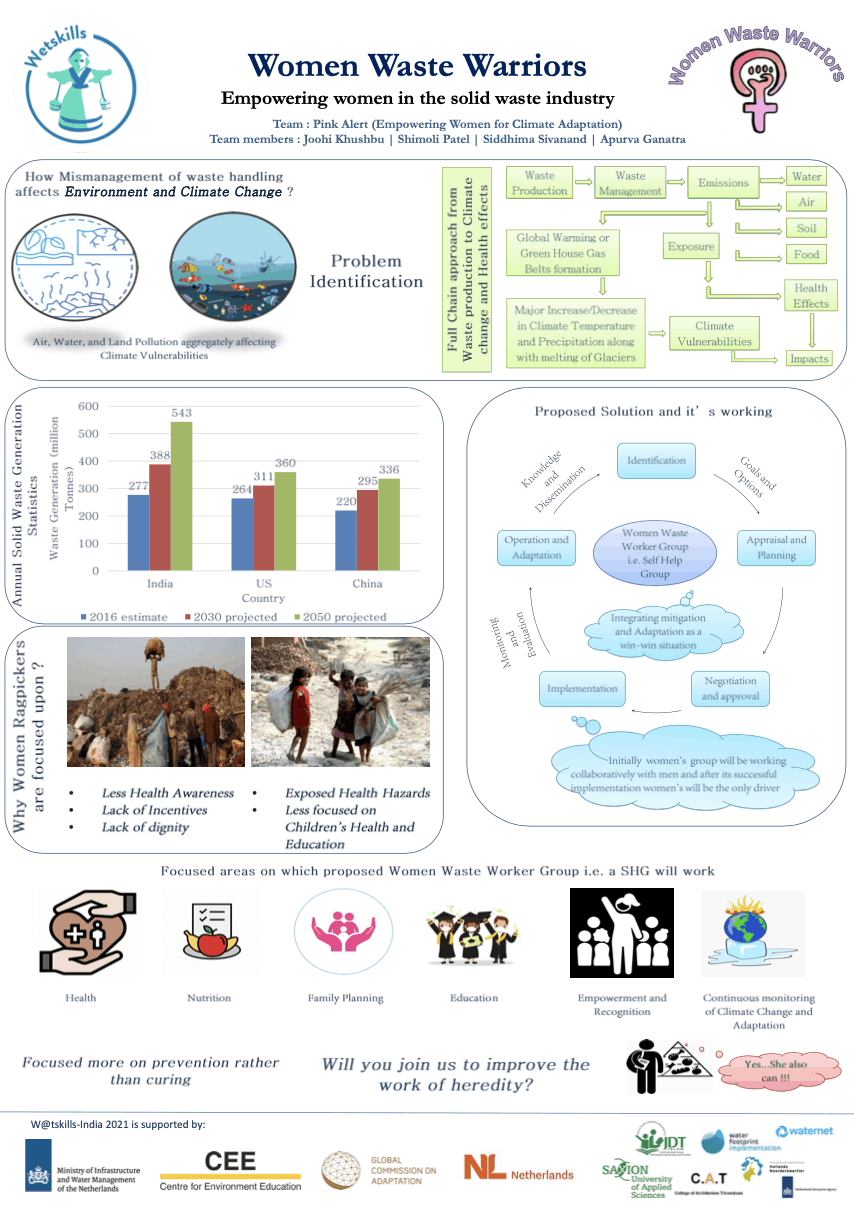
Pitch & Poster
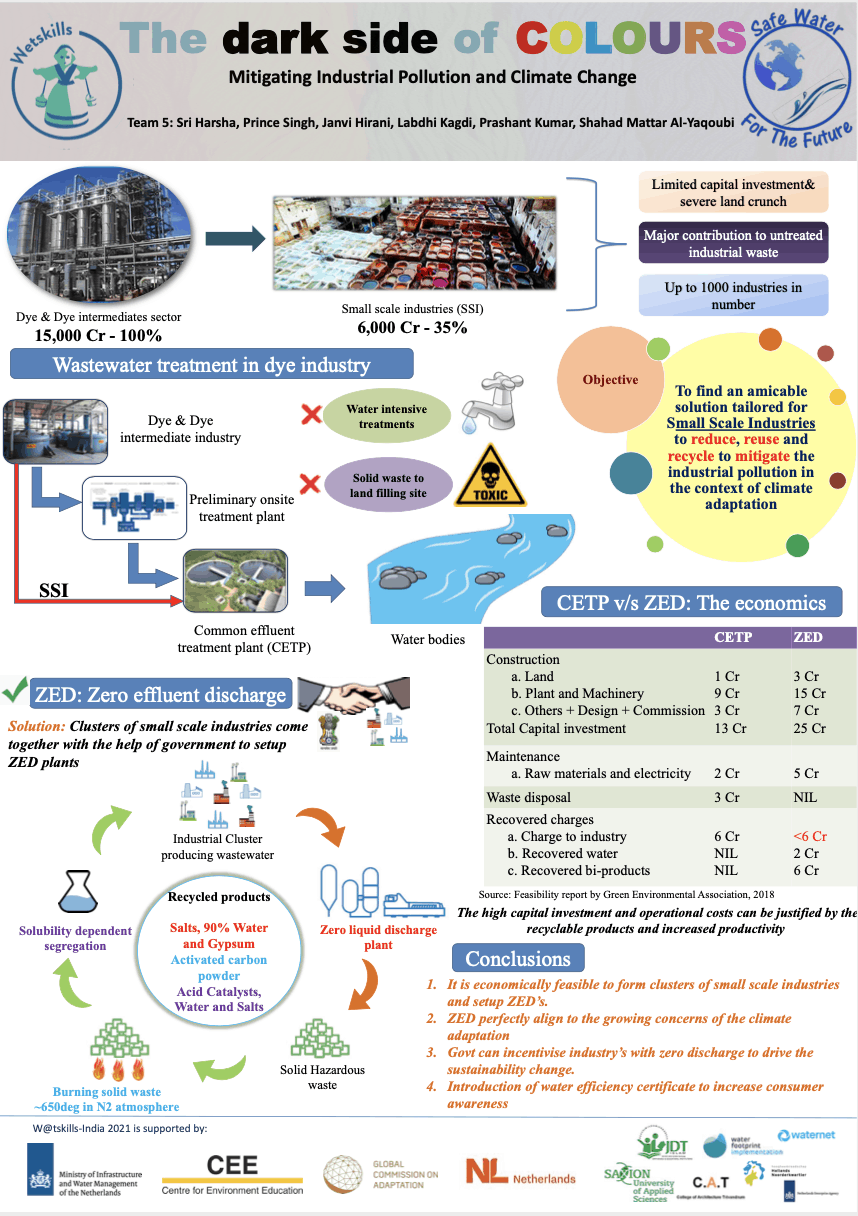
Event Partners

